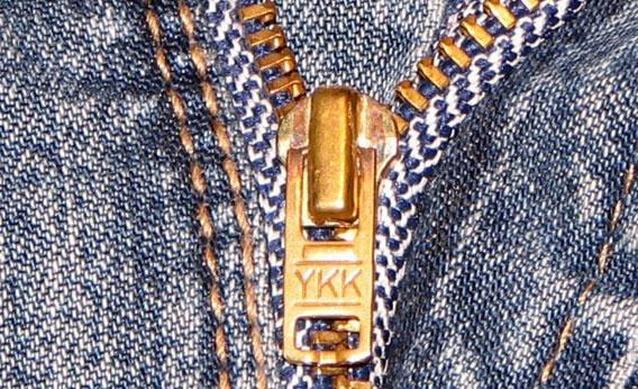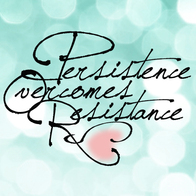Luck and providence aside, nothing has a more pivotal impact on a businesses success than good strategic decisions. What are good decisions made of? Nothing can more effectively optimize the strategic decision making ability of a small business owner than knowing the market and their company's position in it.
But, the devil is in the details - knowing the market means knowing suppliers, vendors, every aspect of your product or of the end product of which yours is a part, and on and on. Also obviously important is an intimate knowledge of competitors and of the multifaceted (and in many cases, continuously evolving) customer issues, such as who they are, where they're located, their purchase motivation, timing and process, their perceptions and priorities with regard to the product and its utility, and so forth. Sometimes I refer to all of this as "watching the horizon." What's out there? What is your environment like? How is it changing?
Unfortunately, it isn't as simple as just looking through binoculars to see the horizon. Also unfortunate is that fact that many small business owners don't take the time to actually do this. Instead they seem to see the landscape only as it passes under their feet as a hundred-mile-an-hour blur as their business careens in whatever unorchestrated direction they happen to be going with their head down working IN the business instead of working ON their business.
Contrast this with the story of YKK. If you are wearing clothing right now - and if one of the articles you are dawning has a zipper, check it and see if it doesn't have these letters stamped on the zipper pull. Go ahead - do it right now! Odds are very good you'll find YKK on your zipper because YKK manufactures most of the zippers in the world - more than 7,000,000,000 - yes, billion with a B, (between 60-90% of all zippers depending on whose numbers you believe).
How is it possible that in an industry as old as fasteners, one company can have that kind of market share for zippers? Simply because Tadao Yoshida, founder of YKK, watched the horizon and acted accordingly. He knew exactly what would position a zipper manufacturer in first place and what it would take to maintain that market share.
Although I realize my summary here will be a drastic oversimplification, here's what it boils down to. One bad zipper, ruins an entire garment! Let's assume a zipper costs 35 cents for YKK to produce. Now, shift gears to YKK's customer - a clothing manufacturer making a $90 dress - which they spend about $30 - $40 manufacturing. There's little chance they'll go with the 5 cent cheaper zipper without regard to quality. It makes no sense even if that article of clothing is only one fourth the cost and price of the dress in our example.
For 90% of apparel manufacturers in the world, quality and dependability reign supreme when it comes to the zipper because the zipper renders the overall product 100% useless when it fails, yet costs only a fraction of a percent of the price of the overall materials going into the product.
Mr. Yoshida understood the market and his desired position in that market - then he acted daily to ensure his company maintained a posture that leveraged this knowledge in order to obtain and keep the desired position in the market. Here's a list of other examples of how YKK has done this:
This type of vertical integration helps ensure complete control of their highest market-position-critical priority - consistent high quality (as well as other important aspects like cost and speed).
I'm currently working with a rapidly growing company who is feeling their way into an amazingly similar situation to that of YKK. As a strategic research team leader for the National Center for Economic Gardening, I'm pleased to see the strategic research team helping this company with valuable information to really understand the market and their place in it. But, even for companies for whom their product situation or business models are vastly different from YKK's, the lesson is the same:
So, how do you (or will you) keep eye on the horizon? Please share your thoughts!
But, the devil is in the details - knowing the market means knowing suppliers, vendors, every aspect of your product or of the end product of which yours is a part, and on and on. Also obviously important is an intimate knowledge of competitors and of the multifaceted (and in many cases, continuously evolving) customer issues, such as who they are, where they're located, their purchase motivation, timing and process, their perceptions and priorities with regard to the product and its utility, and so forth. Sometimes I refer to all of this as "watching the horizon." What's out there? What is your environment like? How is it changing?
Unfortunately, it isn't as simple as just looking through binoculars to see the horizon. Also unfortunate is that fact that many small business owners don't take the time to actually do this. Instead they seem to see the landscape only as it passes under their feet as a hundred-mile-an-hour blur as their business careens in whatever unorchestrated direction they happen to be going with their head down working IN the business instead of working ON their business.
Contrast this with the story of YKK. If you are wearing clothing right now - and if one of the articles you are dawning has a zipper, check it and see if it doesn't have these letters stamped on the zipper pull. Go ahead - do it right now! Odds are very good you'll find YKK on your zipper because YKK manufactures most of the zippers in the world - more than 7,000,000,000 - yes, billion with a B, (between 60-90% of all zippers depending on whose numbers you believe).
How is it possible that in an industry as old as fasteners, one company can have that kind of market share for zippers? Simply because Tadao Yoshida, founder of YKK, watched the horizon and acted accordingly. He knew exactly what would position a zipper manufacturer in first place and what it would take to maintain that market share.
Although I realize my summary here will be a drastic oversimplification, here's what it boils down to. One bad zipper, ruins an entire garment! Let's assume a zipper costs 35 cents for YKK to produce. Now, shift gears to YKK's customer - a clothing manufacturer making a $90 dress - which they spend about $30 - $40 manufacturing. There's little chance they'll go with the 5 cent cheaper zipper without regard to quality. It makes no sense even if that article of clothing is only one fourth the cost and price of the dress in our example.
For 90% of apparel manufacturers in the world, quality and dependability reign supreme when it comes to the zipper because the zipper renders the overall product 100% useless when it fails, yet costs only a fraction of a percent of the price of the overall materials going into the product.
Mr. Yoshida understood the market and his desired position in that market - then he acted daily to ensure his company maintained a posture that leveraged this knowledge in order to obtain and keep the desired position in the market. Here's a list of other examples of how YKK has done this:
- Yoshida innovatively designed better and better zipper making machines (proprietary and well-protected from competitor knowledge).
- Over time he brought nearly every aspect of the process for making zippers in house: According to a Los Angeles Times article on the company, “YKK smelts its own brass, concocts its own polyester, spins and twists its own thread, weaves and color-dyes cloth for its zipper tapes, forges and molds its scooped zipper teeth, extrudes the monofilament for coil zippers, hammers and paints the sliders, ... [and a bunch of other stuff - concluding with] ... fabricates the cardboard boxes in which zippers are packaged.”
- Not only does YKK make their zipper making machines, they make the machines that make the components referenced above.
This type of vertical integration helps ensure complete control of their highest market-position-critical priority - consistent high quality (as well as other important aspects like cost and speed).
I'm currently working with a rapidly growing company who is feeling their way into an amazingly similar situation to that of YKK. As a strategic research team leader for the National Center for Economic Gardening, I'm pleased to see the strategic research team helping this company with valuable information to really understand the market and their place in it. But, even for companies for whom their product situation or business models are vastly different from YKK's, the lesson is the same:
- Know your market (ALWAYS - that means keeping your eye on the horizon).
- Determine the position you seek in that market.
- Identify the top key factors that would uniquely qualify your company to obtain and maintain that position.
- Then, act on it - relentlessly.
So, how do you (or will you) keep eye on the horizon? Please share your thoughts!




 RSS Feed
RSS Feed

